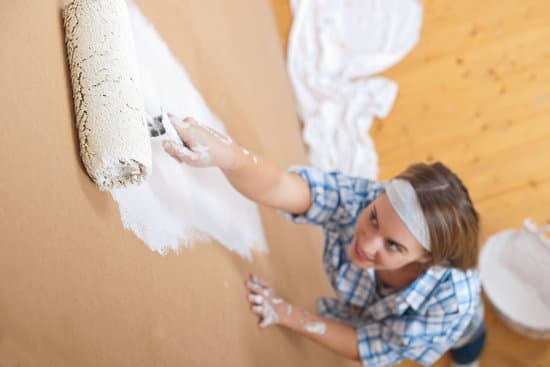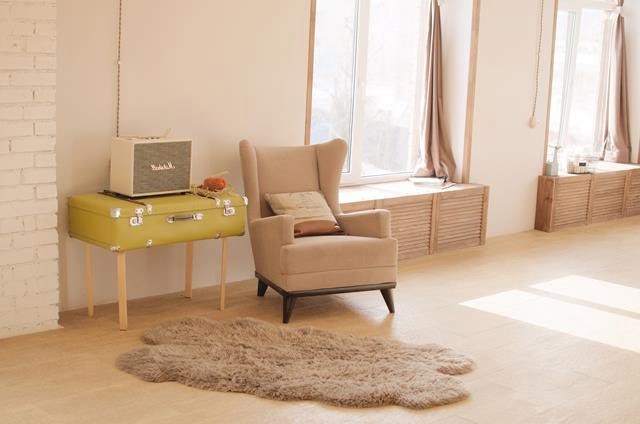Are unsecured home improvement loans tax deductible? Understanding the tax implications of home improvement loans is essential for homeowners looking to renovate their properties. It’s important to know whether these expenses can be considered for tax deductions. This article will provide a comprehensive guide to understanding the tax deductibility of unsecured home improvement loans, including eligibility requirements and advantages.
Home improvement loans can be a valuable financial tool for homeowners looking to make renovations or upgrades to their properties. Whether it’s remodeling a kitchen, adding a new bathroom, or installing energy-efficient windows, these loans provide the necessary funds to complete these projects. However, it is crucial to understand the potential tax benefits associated with these loans.
In this article, we will explore the concept of tax deductible home improvement loans and shed light on the eligibility criteria for claiming tax deductions. Additionally, we will discuss the types of home improvement loans available in the market, with a specific focus on unsecured loans and how they compare to other options. Understanding the tax implications of these loan types is essential for making informed financial decisions as a homeowner.
Understanding Tax Deductible Home Improvement Loans
Home improvement loans can be a valuable financial tool for homeowners looking to make renovations or upgrades to their property. However, it’s important to understand the tax implications of these loans, especially when it comes to determining whether they are tax deductible. Tax deductible home improvement loans are those that allow homeowners to deduct the interest paid on the loan from their taxable income. This can result in significant savings for those who qualify for this deduction.
Eligibility for tax deductions on home improvement loans is based on certain criteria set by the Internal Revenue Service (IRS). In general, the IRS allows for tax deductions on home improvement loans if the funds were used to make substantial improvements to a primary or secondary residence. It’s crucial for homeowners to keep detailed records and receipts of all expenses related to the home improvement project in order to prove eligibility for this deduction.
When it comes to choosing a home improvement loan, there are several options available to homeowners. Unsecured home improvement loans are one such option that does not require collateral, making them an attractive choice for many individuals. These types of loans are typically based on a borrower’s creditworthiness and income, rather than any physical asset.
In contrast, secured home improvement loans require some form of collateral, such as a property or vehicle, which can be repossessed if the borrower defaults on the loan. Another option is a home equity loan or line of credit, which uses the equity in the homeowner’s property as collateral. Each type of loan has its own advantages and considerations when it comes to tax deductions and overall financial implications.
Overall, understanding tax deductible home improvement loans is essential for homeowners considering taking out a loan for renovation projects. By familiarizing themselves with the requirements for eligibility and comparing different types of loans, individuals can make informed decisions that will maximize their potential tax benefits while ensuring they remain financially secure throughout their home improvement journey.
Types of Home Improvement Loans
When it comes to financing home improvement projects, homeowners have several options to choose from, including unsecured home improvement loans. These types of loans are not backed by collateral such as a home or other asset, making them a popular choice for those who do not want to put their property at risk. However, an important question that many homeowners have is whether unsecured home improvement loans are tax deductible.
In order to understand the tax implications of unsecured home improvement loans, it is important to first grasp the concept of tax deductible loans. Tax deductible loans are those in which the interest paid on the loan can be deducted from the borrower’s taxable income. This means that borrowers may be able to reduce their overall tax liability as a result of the interest paid on eligible loans.
Eligibility for tax deductions on home improvement loans largely depends on how the funds are used. In general, in order for a home improvement loan to be tax deductible, it must be used to make “capital improvements” to the property. These improvements typically increase the value of the home, such as adding a new room or renovating a kitchen or bathroom.
Therefore, if borrowers use an unsecured loan specifically for qualifying home improvement projects, they may be able to take advantage of tax deductions. However, it is important to consult with a tax professional or financial advisor to ensure eligibility based on individual circumstances and local tax laws.
Tax Deductions for Home Improvement Loans
When it comes to financing home improvement projects, many homeowners opt for unsecured home improvement loans. These loans are not backed by any collateral, such as a house or car, and can be used for a variety of purposes. But are unsecured home improvement loans tax deductible? Understanding the tax implications of these loans is essential for maximizing their benefits.
Explanation of Tax Deductions
Tax deductible home improvement loans refer to the interest that can be deducted from your taxes. Generally, the interest on any loan used for renovations or improvements on your primary residence may be tax deductible. This can result in substantial savings when it comes time to file your taxes.
Eligibility for Tax Deductions
In order for home improvement loans to be tax deductible, they must meet certain criteria. Firstly, the loan must be used for a “capital improvement” to your home, meaning it adds value or prolongs its life.
Additionally, you must itemize your deductions rather than take the standard deduction in order to benefit from tax deductible loan interest. It’s important to consult with a tax professional or financial advisor to ensure that you meet all the requirements for claiming this deduction.
While unsecured home improvement loans offer flexibility and convenience, it’s imperative to understand how they can impact your taxes. By familiarizing yourself with the eligibility requirements and potential deductions, you can make informed decisions about financing your home renovations while maximizing tax benefits.
Advantages of Unsecured Home Improvement Loans
Unsecured home improvement loans can be a great option for homeowners looking to make improvements to their property without using their home as collateral. One of the advantages of unsecured home improvement loans is the flexibility and ease of obtaining these loans.
Unlike secured loans, which require the borrower to put up their home or other valuable assets as collateral, unsecured loans do not require any collateral. This makes them a popular choice for homeowners who may not have enough equity in their homes to qualify for a secured loan.
In addition to the flexibility of not needing collateral, unsecured home improvement loans also offer benefits for tax deductions. While most traditional personal loans are not tax deductible, certain types of unsecured home improvement loans may qualify for tax deductions if they meet certain criteria. For example, if the loan is used specifically for home improvement purposes and meets other requirements set by the Internal Revenue Service (IRS), it may be eligible for tax deductions.
Another advantage of unsecured home improvement loans when it comes to tax deductions is that they can be easier to track and prove eligibility compared to other types of financing. With a specific loan devoted solely to home improvements and no collateral involved, it becomes simpler to demonstrate that the funds were used for eligible expenses and meet the IRS criteria for tax deductibility.
It’s important, however, for homeowners considering an unsecured loan for home improvements to carefully review all terms and conditions with a qualified professional before pursuing this type of financing option in order to ensure eligibility for potential tax deductions.
Considerations Before Applying for Unsecured Home Improvement Loans
Unsecured home improvement loans provide a convenient way to finance your home renovation projects without having to use your house as collateral. However, before applying for unsecured loans, there are several important considerations to keep in mind:
- Interest Rates: Unsecured loans typically have higher interest rates compared to secured loans, which are backed by collateral such as your home. It’s important to carefully consider the interest rates and potential impact on your overall financial situation before deciding on an unsecured loan.
- Credit Score: Unlike secured loans, unsecured loans heavily depend on the borrower’s creditworthiness. Lenders may require a good credit score in order to qualify for favorable terms. Be sure to review your credit report and take steps to improve your score if necessary before applying for an unsecured loan.
- Loan Amounts: Unsecured home improvement loans may have lower maximum loan amounts compared to secured options. Consider whether the loan amount offered will be sufficient to cover your renovation expenses before moving forward with an unsecured loan.
In addition, it’s essential to evaluate the potential risks of using unsecured home improvement loans for tax deductions. While these types of loans do offer flexibility and convenience, they may not always be tax deductible.
It’s also important to carefully analyze the repayment terms and monthly payment obligations associated with unsecured loans in order to ensure that you can comfortably manage the repayment schedule without putting a strain on your finances.
Overall, taking the time to thoroughly consider these factors will help you make an informed decision when it comes to applying for unsecured home improvement loans and their potential tax implications.
Tips for Maximizing Tax Deductions on Home Improvement Loans
When it comes to home improvement projects, many homeowners rely on loans to finance their renovations. Understanding the tax implications of these loans is crucial in maximizing potential deductions. Here, we will discuss some valuable tips for homeowners looking to maximize tax deductions on their home improvement loans.
Keep Detailed Records
One of the key factors in maximizing tax deductions for home improvement loans is keeping meticulous records of all expenses related to the renovation project. This includes receipts for materials and labor, invoices, and any other relevant documentation. Having accurate records will not only ensure that you are claiming the correct amount for deductions but will also serve as evidence in case of an audit by the IRS.
Understand Eligibility Requirements
In order for a home improvement loan to be tax deductible, it must meet certain criteria set forth by the IRS. It’s important for homeowners to familiarize themselves with these requirements and understand whether their loan qualifies for deductions. For example, the loan must be used specifically for substantial improvements to the primary residence, not just regular maintenance or repairs.
Consult With a Tax Professional
Navigating tax laws and regulations can be complex, especially when it comes to deductions related to home improvement loans. Therefore, it’s highly recommended that homeowners consult with a qualified tax professional before claiming any deductions. They can provide guidance on maximizing available benefits and ensure that all necessary documentation is in order.
By following these tips, homeowners can make informed decisions regarding their home improvement loans and potentially maximize their tax deductions while ensuring they stay compliant with the IRS regulations.
Conclusion
In conclusion, it is important for homeowners to have a clear understanding of tax deductions for home improvement loans. While unsecured home improvement loans may offer flexibility and ease of obtaining funds, they come with certain risks and considerations. It is crucial to carefully weigh the advantages and disadvantages before deciding on the type of loan to pursue.
One key consideration when it comes to unsecured home improvement loans is their potential tax deductibility. Homeowners should be aware that not all unsecured loans may be eligible for tax deductions. Therefore, it is essential to consult with a tax professional or financial advisor to ensure that the loan meets the requirements for tax deductibility.
Overall, maximizing tax benefits on home improvement loans requires careful planning and strategic decision-making. By understanding the eligibility criteria and requirements for tax deductions, homeowners can make informed choices when pursuing unsecured home improvement loans. Additionally, staying proactive and informed about changes in tax laws can also help homeowners maximize their savings on home improvement expenses through tax deductions.
Frequently Asked Questions
Can a Home Improvement Loan Be Tax Deductible?
A home improvement loan may be tax deductible if the funds are used to make capital improvements to your home. These improvements must increase the value of your home, such as adding a new bathroom or renovating the kitchen.
Is Unsecured Loan Interest Tax Deductible?
Unsecured loan interest is generally not tax deductible, as these loans are not backed by any collateral such as a house or car. However, there may be some exceptions for specific circumstances, so it’s best to consult with a tax professional for personalized advice.
What Type of Home Loans Are Tax Deductible?
Several types of home loans are tax deductible, including mortgage interest on a primary or secondary residence, home equity loans, and home equity lines of credit (HELOCs). The specific criteria for deducting interest on these loans can vary, so it’s important to understand the IRS rules and regulations regarding each type of loan.

I’m thrilled to have you here as a part of the Remodeling Top community. This is where my journey as an architect and remodeling enthusiast intersects with your passion for transforming houses into dream homes.





